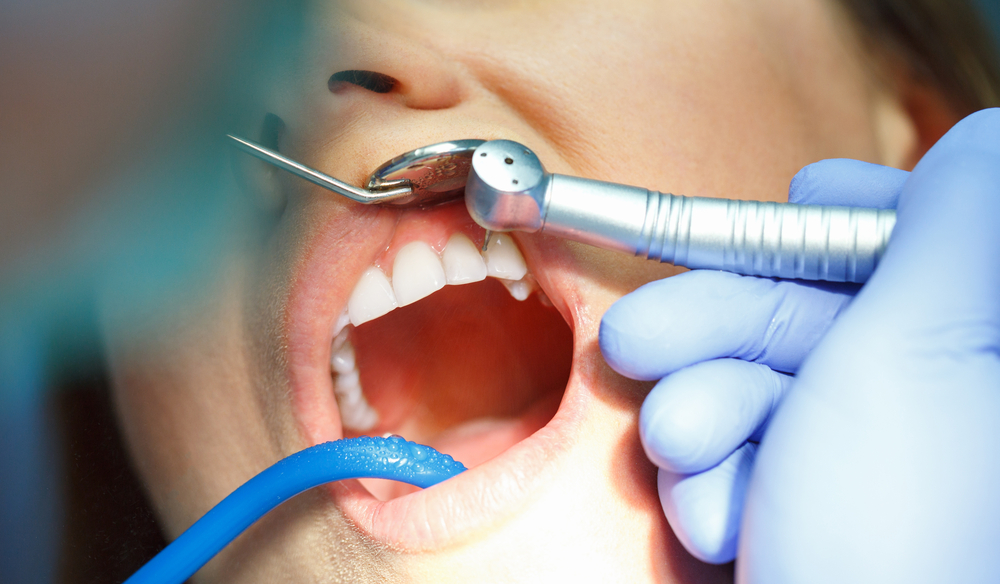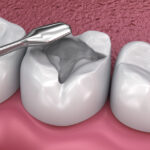Jaw Pain After Dental Filling
Jaw pain after a dental filling can result from several factors, including bite misalignment or inflammation. It’s essential to consult your dentist for proper evaluation and treatment.
Dental fillings are a common dental procedure designed to restore the function and integrity of a tooth affected by decay. While most patients experience minimal discomfort post-treatment, some may encounter jaw pain. This discomfort can arise from various reasons, such as the dental work affecting your bite or underlying inflammation.
Understanding these causes helps in addressing the issue effectively. Prompt communication with your dentist can ensure that any misalignment or discomfort is corrected, allowing for a smoother recovery and better oral health. Taking care of your dental needs is vital for long-term well-being.
Introduction To Jaw Pain Post-dental Filling
Jaw pain after a dental filling can happen for several reasons. Common causes include inflammation, tooth sensitivity, or muscle strain. Sometimes, the filling may be too high. This can cause discomfort when biting down. Another reason could be an underlying dental issue.
Immediate steps to take include rinsing your mouth with warm salt water. This helps reduce inflammation. Applying a cold pack outside the jaw can also relieve pain. Over-the-counter pain relievers can be effective as well. If the pain persists, visit your dentist as soon as possible.
Identifying The Root Cause
Jaw pain after a dental filling can be frustrating. One common reason is a high filling. This occurs when the filling is too high, causing discomfort when biting. It can lead to tooth sensitivity and pain. If you feel pressure or pain, consider visiting your dentist.
TMJ stress is another factor to consider. This condition affects the jaw joint. Stress can cause jaw clenching or grinding. Both can lead to muscle fatigue and pain. Treatment options include relaxation techniques and dental guards.
Home Remedies For Instant Comfort
Applying a cold compress can help reduce swelling and pain. Wrap ice in a cloth. Place it on the jaw for 15 minutes. Repeat as needed for comfort.
Switching to a soft diet can ease discomfort after a dental filling. Foods like yogurt, mashed potatoes, and smoothies are great options. Avoid hard, crunchy, or sticky foods for a few days. This will help your jaw heal faster.
Exercises To Ease Jaw Tension
Gentle jaw stretching helps relieve tension. Open your mouth slowly and hold for five seconds. Then, close your mouth gently. Repeat this exercise five times. Another stretch involves moving your jaw side to side. Hold each position for a few seconds. This helps improve flexibility.
Strengthening exercises build jaw muscles. Try biting down on a soft rubber ball. Hold for a few seconds and release. Repeat this five times. Another exercise involves pressing your palm against your chin. Push gently while resisting with your jaw. Do this for ten seconds, then relax.
When To See Your Dentist Again
Watch for persistent pain after getting a dental filling. This pain is a red flag. It may mean your filling needs adjustment.
Other signs include:
- Sensitivity to hot or cold foods
- Discomfort while chewing
- Visible cracks or chips in the filling
- Swelling in the gums around the filling
Ignoring these signs can lead to bigger problems. Always consult your dentist if you feel discomfort.
Preventive Measures For The Future
Choosing the right dental care is very important. Look for a dentist with good reviews. Ask friends or family for recommendations. Make sure the dentist uses modern techniques and materials.
Regular check-ups help catch problems early. These visits can prevent painful issues later. Dentists check for cavities and other concerns. They can offer advice on oral hygiene. Follow their tips to keep your teeth healthy.
Conclusion: Embracing A Pain-free Future
Dental fillings can cause temporary jaw pain for some people. This pain may happen due to the pressure from the filling. Keeping your mouth relaxed can help reduce discomfort. Avoid chewing tough foods for a few days. Ice packs can also ease swelling and pain.
Maintaining good dental health is essential. Regular brushing and flossing can prevent further issues. Visit your dentist regularly for check-ups. They can spot problems early. Staying hydrated also helps keep your mouth healthy.
Following these simple tips can lead to a pain-free future. Take care of your smile, and it will take care of you!
Westwood Gardens Dental Clinic: One of the best dental clinics in Richmond Hill, Ontario
For those in Richmond Hill, Ontario, Westwood Gardens Dental Clinic is a trusted provider of high-quality dental care, including partial dentures. Call them today at 647-905-7303 or email info@westwoodgardens-dental.ca to schedule a consultation. You can also visit their clinic at Unit 18, 8868 Yonge St, Richmond Hill, ON, L4C 1Z8 for a comprehensive assessment and personalized treatment plan.
Frequently Asked Questions
Why Does My Jaw Hurt After A Dental Filling?
Jaw pain after a dental filling can occur due to several factors. The numbing agent used during the procedure may lead to temporary discomfort. Additionally, if the filling is too high, it can cause bite misalignment. It’s essential to consult your dentist for proper evaluation and treatment.
Is Jaw Pain Normal After A Dental Procedure?
Yes, some jaw pain is normal after dental work. It often results from the mouth being held open for an extended period. Additionally, inflammation around the filling site can contribute to discomfort. If the pain persists, contact your dentist for advice and potential adjustments.
How Long Does Jaw Pain Last After Fillings?
Jaw pain typically lasts a few days after dental fillings. Most discomfort should subside within 48 hours. However, if pain continues or worsens, it may indicate an issue. Consult your dentist to rule out complications like infection or bite problems.
What Can I Do For Jaw Pain After Filling?
To alleviate jaw pain after a filling, consider applying a warm compress. Over-the-counter pain relievers like ibuprofen can also help. Avoid hard or chewy foods during recovery. If pain persists, contact your dentist for further evaluation and possible adjustments.
Conclusion
Experiencing jaw pain after a dental filling can be concerning. It’s essential to monitor your symptoms closely. If the discomfort persists, consult your dentist for guidance. Understanding the causes can help you manage the pain effectively. Prioritize your dental health to ensure a smooth recovery and maintain your overall well-being.




